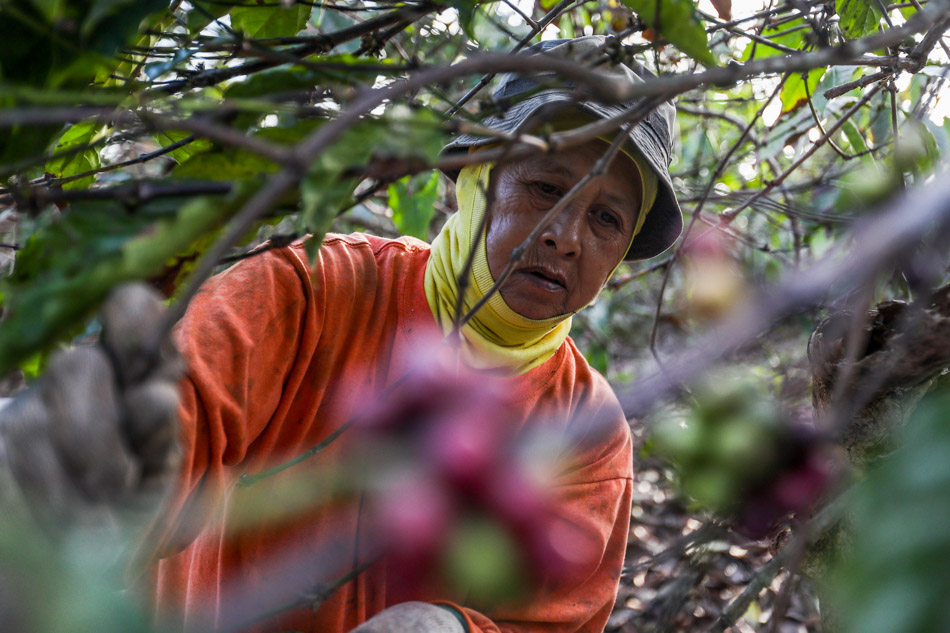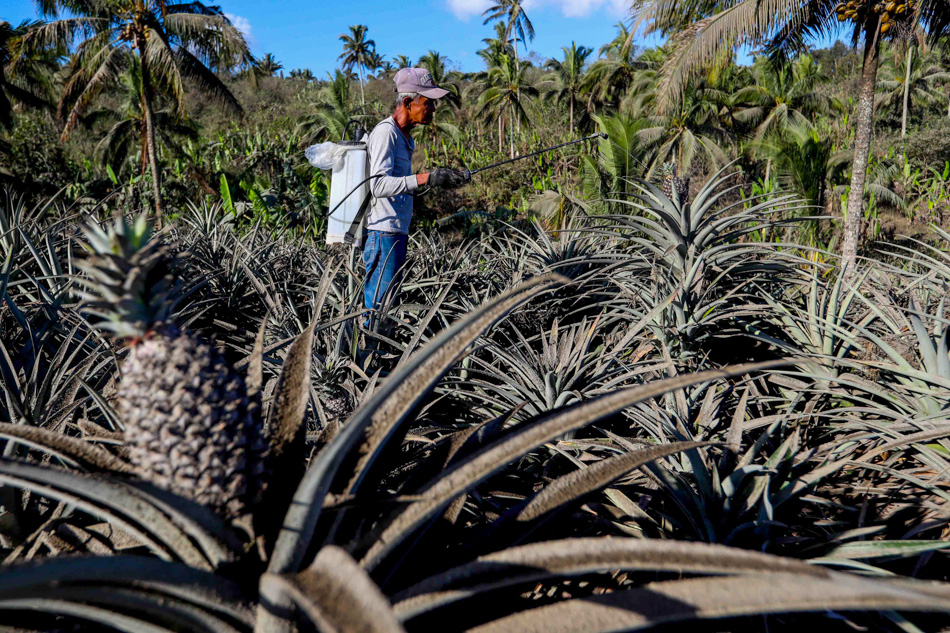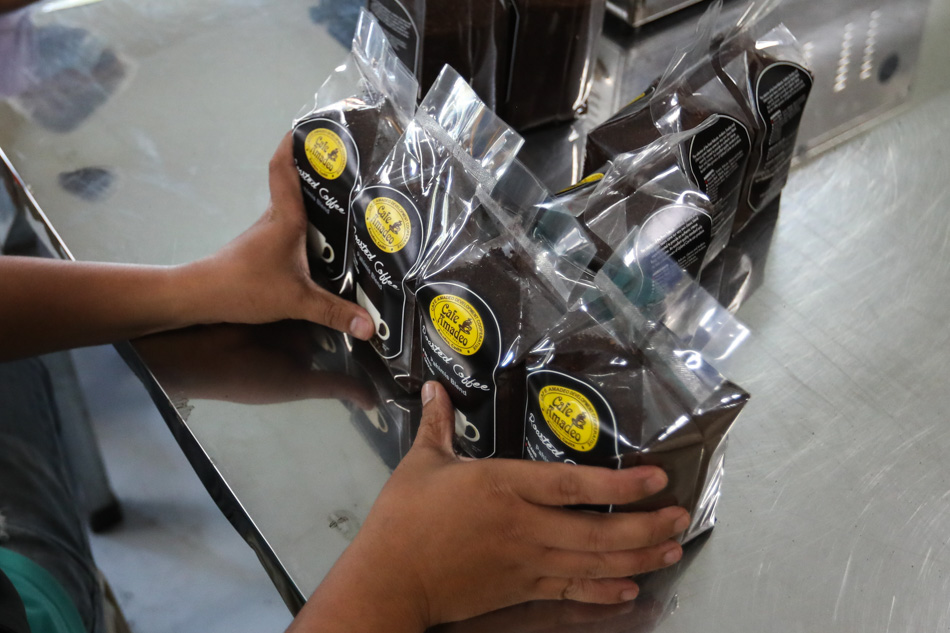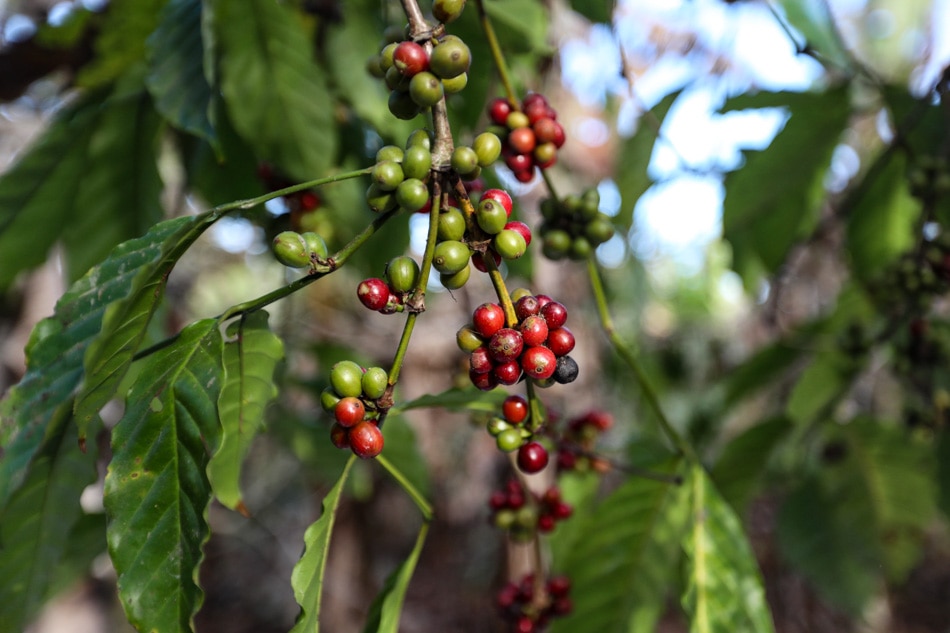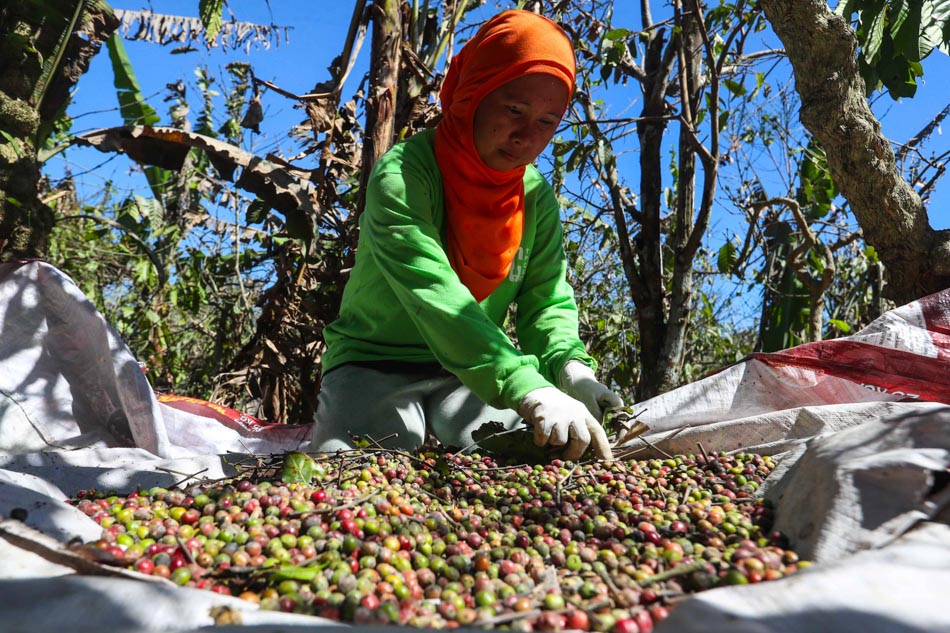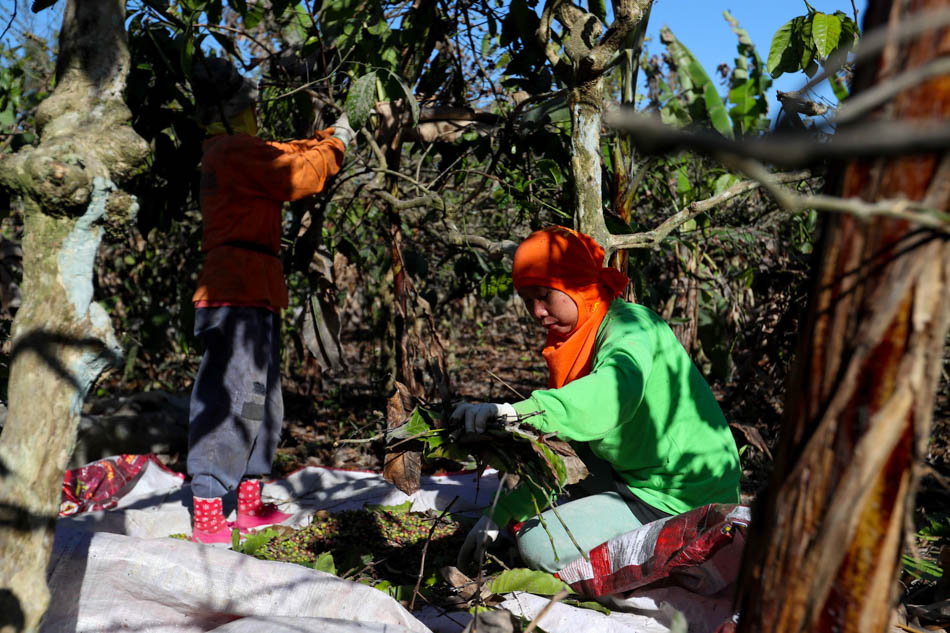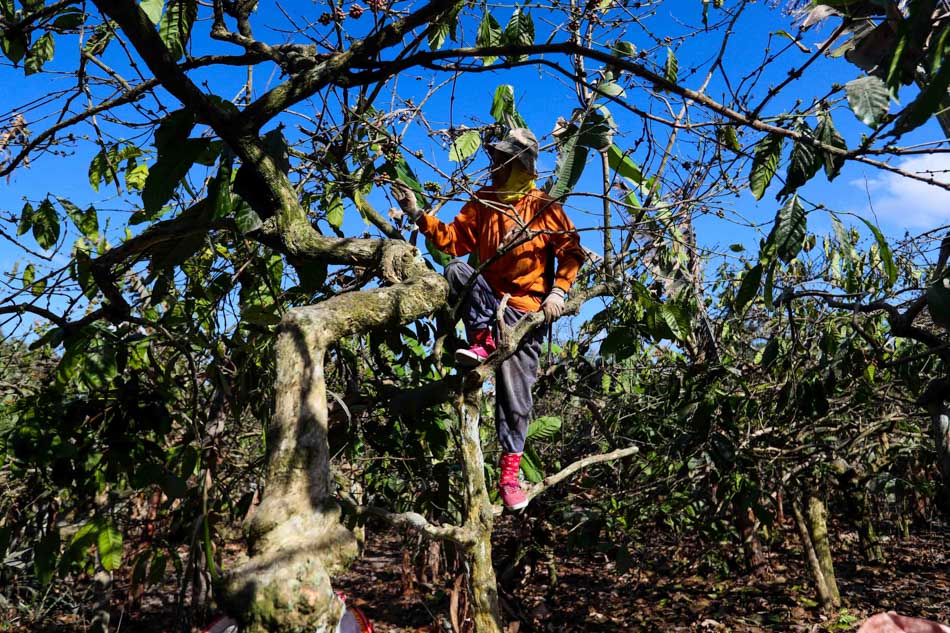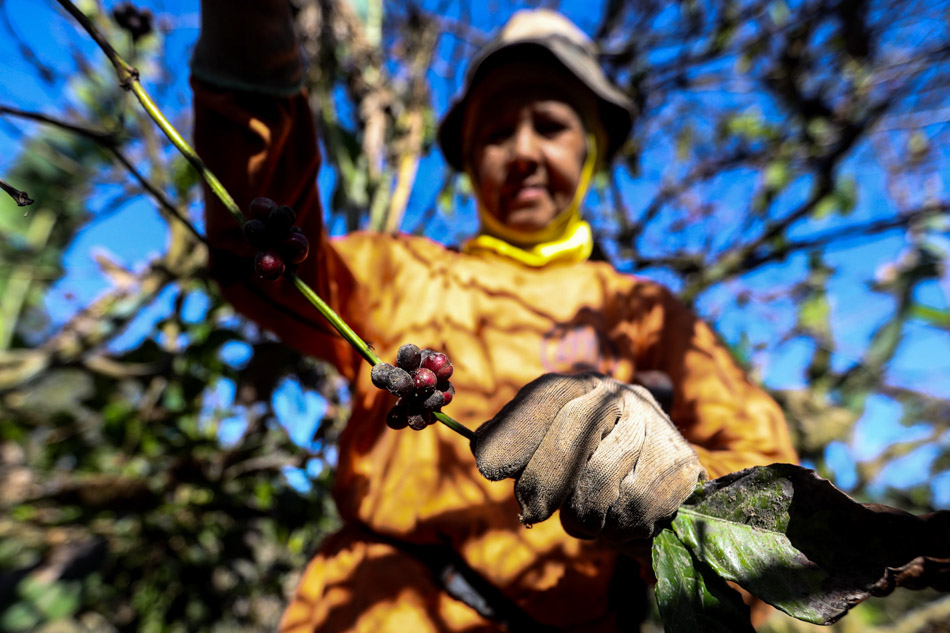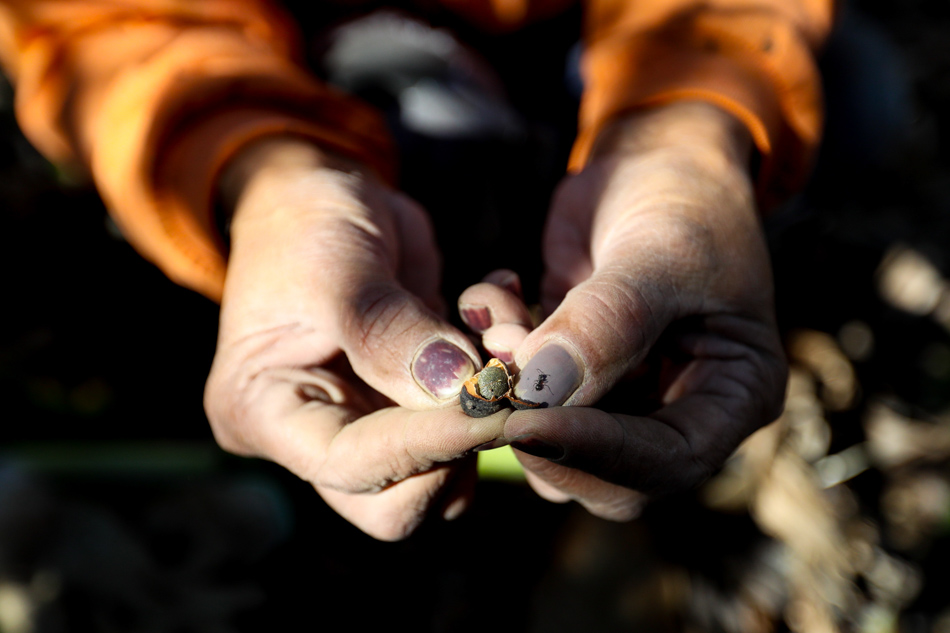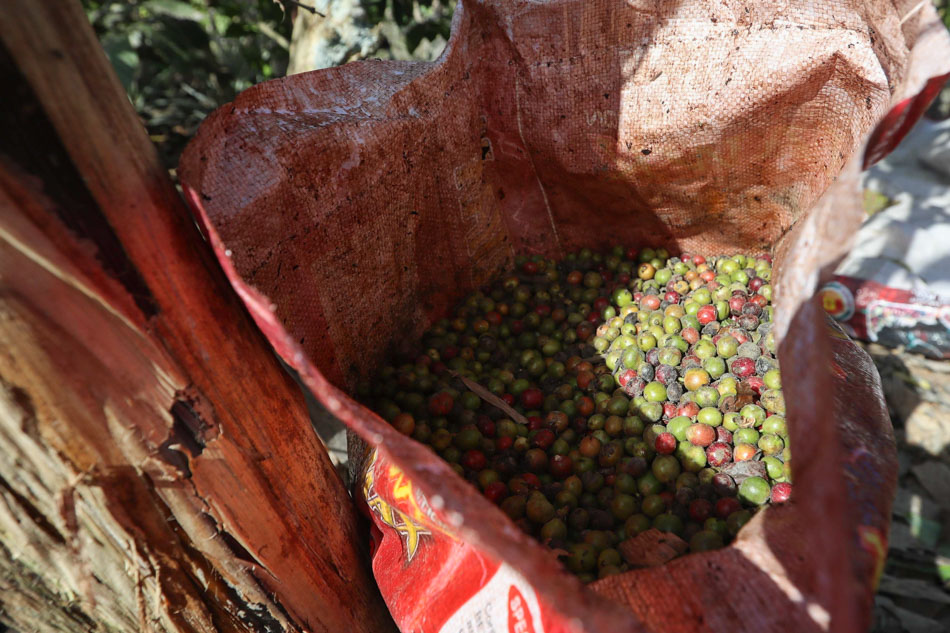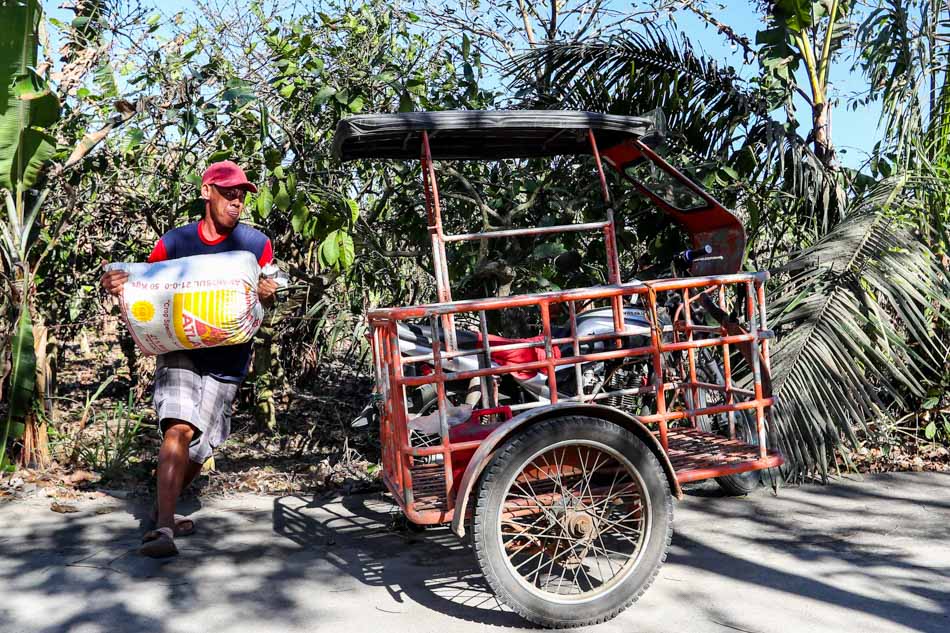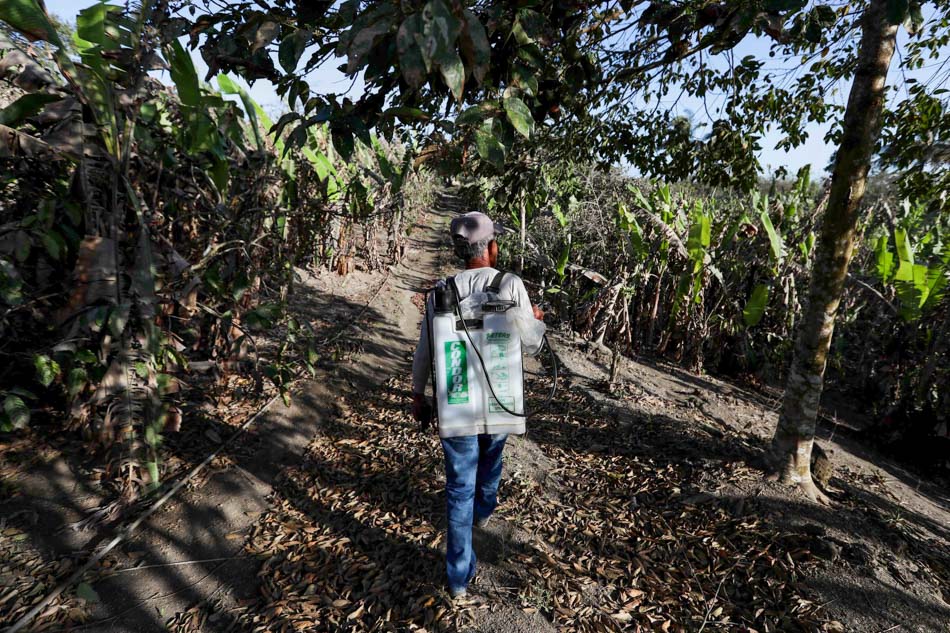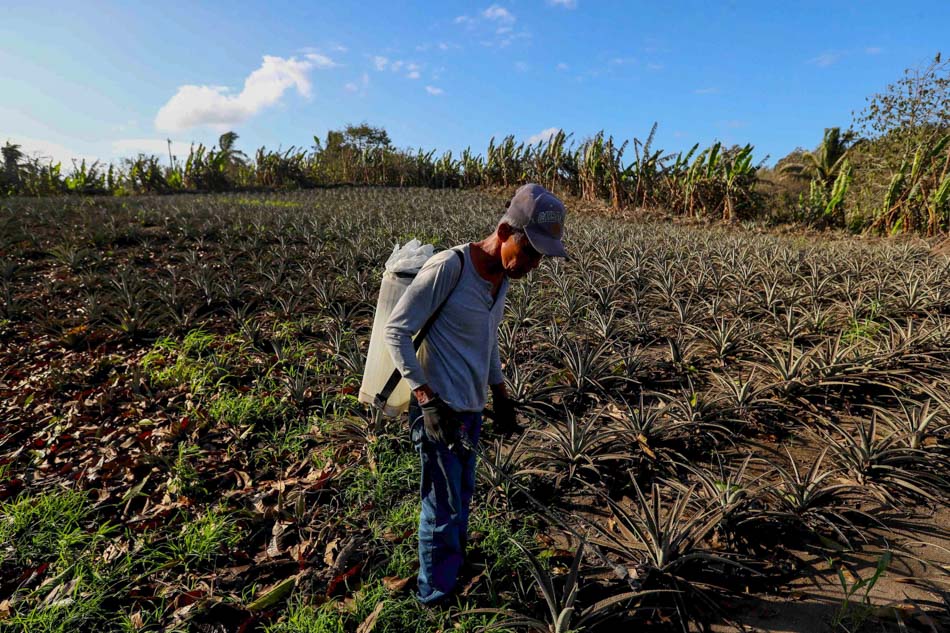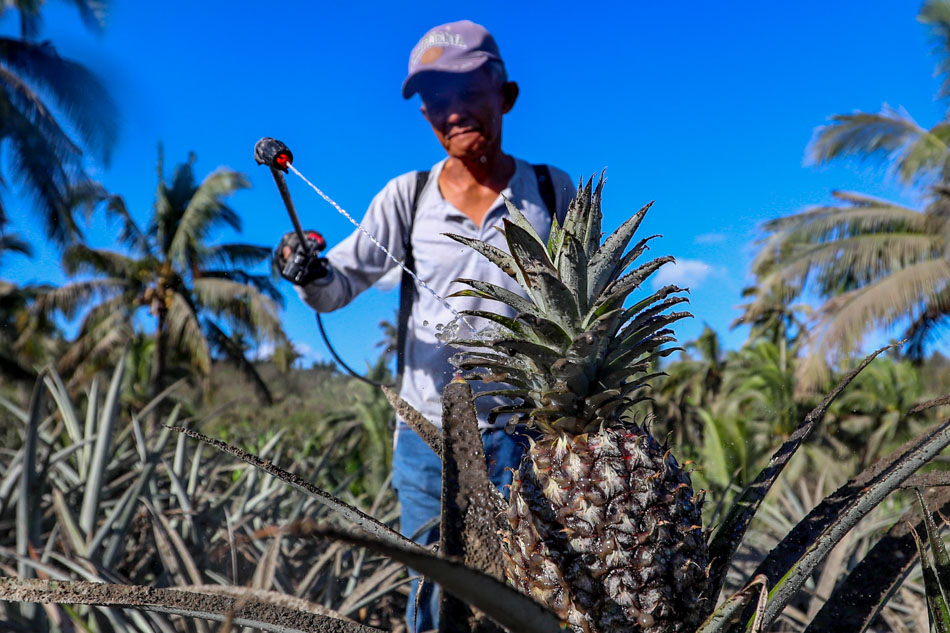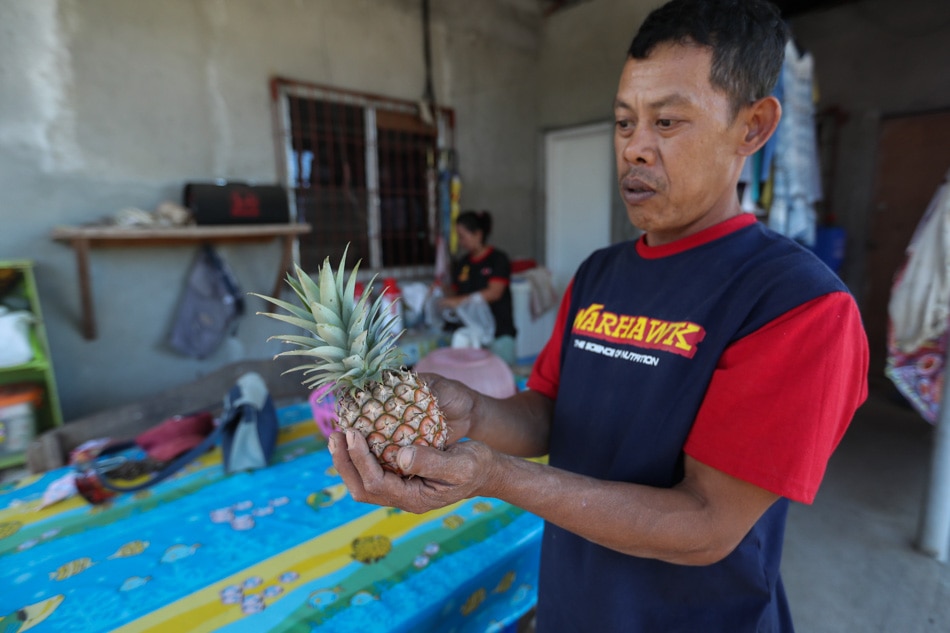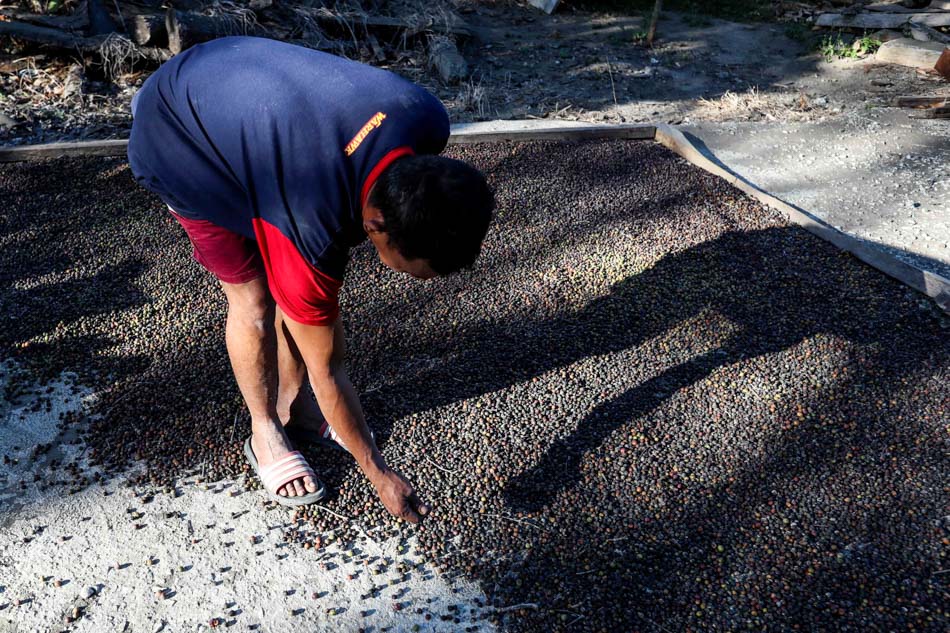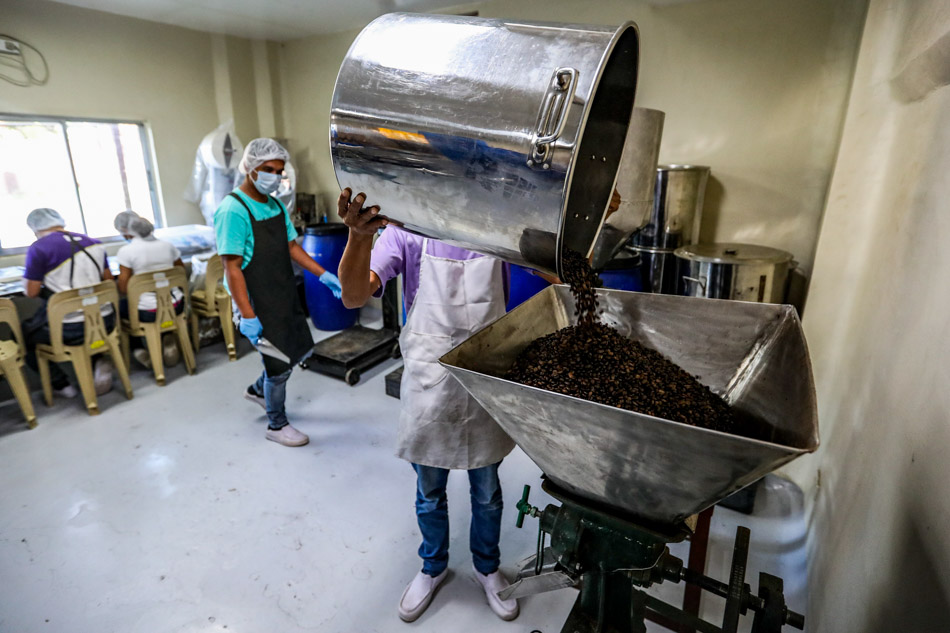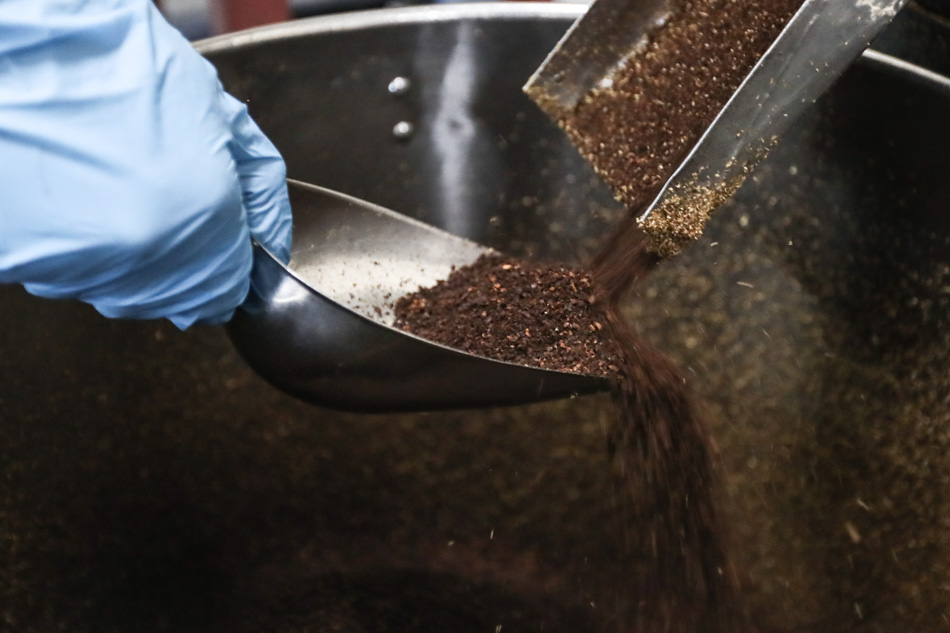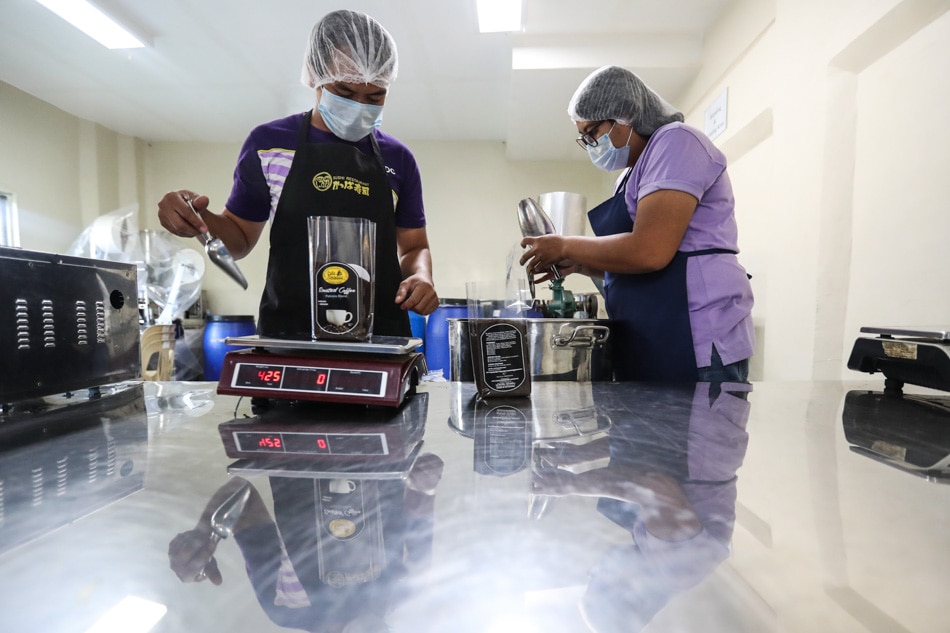Trouble brewing in Cavite town’s local coffee industry | ABS-CBN
ADVERTISEMENT

Welcome, Kapamilya! We use cookies to improve your browsing experience. Continuing to use this site means you agree to our use of cookies. Tell me more!
Trouble brewing in Cavite town’s local coffee industry
Trouble brewing in Cavite town’s local coffee industry
George Calvelo,
ABS-CBN News
Published Jan 25, 2020 03:33 AM PHT
|
Updated Jan 26, 2020 05:47 PM PHT
The second most active volcano in the country, Taal Volcano erupted on January 12, 2020, displacing thousands of people in Calabarzon region and, according to Department of Agriculture-Calabrzon and Bureau of Fisheries and Aquatic Resources, leading to an estimated P3.06 billion in agricultural damage.
This compounds already existing problems in the farming sector of Amadeo town, Cavite, which, in addition to the latest eruption, has had to deal with the effects of climate change, dwindling farmland, and a general disinterest in farming.
As Taal Volcano’s threat continues to loom, Amadeo residents carry on with their lives as, in the back of their minds, grave concern about their future persists.
For Evangeline Bedua, it’s change she’s reluctant to accept.
For Evangeline Bedua, it’s change she’s reluctant to accept.
“Kape ang pangunahing produkto ng Amadeo, pero parang napapalitan na ng pinya,” the 37-year-old farmer says.
“Kape ang pangunahing produkto ng Amadeo, pero parang napapalitan na ng pinya,” the 37-year-old farmer says.
“Napapalitan gawa ng tuwing tag-ulan, di makapagpatuyo ng kape. Kapag tag-init naman hindi makapamunga, at natutuyo ang bulaklak.”
“Napapalitan gawa ng tuwing tag-ulan, di makapagpatuyo ng kape. Kapag tag-init naman hindi makapamunga, at natutuyo ang bulaklak.”
Bedua shares her observations, as she takes a break from harvesting coffee fruits in a farm owned by a retired Navy officer.
Bedua shares her observations, as she takes a break from harvesting coffee fruits in a farm owned by a retired Navy officer.
ADVERTISEMENT
She mixes cream powder with instant coffee in a small container, as she sits on empty sacks sewn together and refurbished as a mat that serves to catch coffee fruits.
She mixes cream powder with instant coffee in a small container, as she sits on empty sacks sewn together and refurbished as a mat that serves to catch coffee fruits.
“Pinaghahalo ko kasi kapag di ko hinalo ang Coffee Mate ay mauunang mauubos ang kape,” she says.
“Pinaghahalo ko kasi kapag di ko hinalo ang Coffee Mate ay mauunang mauubos ang kape,” she says.
Eva and her sister-in-law, Sophia Bedua, 61, share their experiences as coffee farmers.
Eva and her sister-in-law, Sophia Bedua, 61, share their experiences as coffee farmers.
“Matagal na proseso ang pangangape. Aanihin, patutuyuin ng isang linggo, depende pa sa panahon kung uulan. Pagkatuyo, dadalhin sa amo ng balde balde. Du’n pa lang mababayaran,” Eva says.
“Matagal na proseso ang pangangape. Aanihin, patutuyuin ng isang linggo, depende pa sa panahon kung uulan. Pagkatuyo, dadalhin sa amo ng balde balde. Du’n pa lang mababayaran,” Eva says.
Sophia earns P50 for every 20-liter tin can full of coffee fruits gathered from the farm. She only gets paid after that long process of waiting, harvesting, and drying of coffee fruits is done.
Sophia earns P50 for every 20-liter tin can full of coffee fruits gathered from the farm. She only gets paid after that long process of waiting, harvesting, and drying of coffee fruits is done.
ADVERTISEMENT
“’Yung kikitain ko ay ipambabayad ko du’n sa inutang ko na bigas. P60 ang isang kilo. Katulad ngayon, buwan ng Enero na ang pag-ani. Tinamaan pa ng abo, ay pa’no na kami?” Sophia says.
“’Yung kikitain ko ay ipambabayad ko du’n sa inutang ko na bigas. P60 ang isang kilo. Katulad ngayon, buwan ng Enero na ang pag-ani. Tinamaan pa ng abo, ay pa’no na kami?” Sophia says.
Coffee fruits are harvested from trees that take roughly a whole year to flower, and another few months for it to bear fruit. It all depends on the weather. Rainy days make it difficult to dry coffee beans, which causes molds to grow.
Coffee fruits are harvested from trees that take roughly a whole year to flower, and another few months for it to bear fruit. It all depends on the weather. Rainy days make it difficult to dry coffee beans, which causes molds to grow.
After Taal erupted, livelihood from surrounding provinces was severely affected. Banana, papaya, and guyabano are among the few crops that are rendered useless after an ash fall destroyed plantations. The agriculture department estimates losses at about P3.06 billion.
After Taal erupted, livelihood from surrounding provinces was severely affected. Banana, papaya, and guyabano are among the few crops that are rendered useless after an ash fall destroyed plantations. The agriculture department estimates losses at about P3.06 billion.
Growing pineapple
Mario Angcao, 70, grabs his sprayer and walks down the muddy road leading toward his pineapple farm.
Mario Angcao, 70, grabs his sprayer and walks down the muddy road leading toward his pineapple farm.
“Matibay naman ang balat ng pinya. Mahuhugasan pa ito, at mahihinog pa. Di tulad ng saging at papaya, wala na talaga,” Angcao says.
“Matibay naman ang balat ng pinya. Mahuhugasan pa ito, at mahihinog pa. Di tulad ng saging at papaya, wala na talaga,” Angcao says.
ADVERTISEMENT
Mang Mario shares the same sentiment as Aling Eva.
Mang Mario shares the same sentiment as Aling Eva.
“Parang namamaalam na ang kape dito sa aming bayan,” Mario says.
“Parang namamaalam na ang kape dito sa aming bayan,” Mario says.
Angcao, also a coffee farmer, wonders what the future holds.
Angcao, also a coffee farmer, wonders what the future holds.
“Ang puno ng kape, ’pag tumanda na, hindi na mamumunga. ’Pag magtanim ka naman ng bago, mamumulaklak pero di nagiging bunga. Dulot ’yan ng climate change. Hindi na rin kasi kasing taba noon ang lupa ngayon,” Angcao says.
“Ang puno ng kape, ’pag tumanda na, hindi na mamumunga. ’Pag magtanim ka naman ng bago, mamumulaklak pero di nagiging bunga. Dulot ’yan ng climate change. Hindi na rin kasi kasing taba noon ang lupa ngayon,” Angcao says.
He explains that extreme weather changes are more of the problem, rather than the volcano erupting and the consequent ash fall. Aside from this, he cites that the trend of selling land is hurting the farming industry.
He explains that extreme weather changes are more of the problem, rather than the volcano erupting and the consequent ash fall. Aside from this, he cites that the trend of selling land is hurting the farming industry.
ADVERTISEMENT
“ ’Yung mga nakapag-aral na anak dito sa amin, binebenta na ang lupa dahil hindi naman nila alam pa’no magbukid. ’Yung iba pinagpapagawan ng mga bahay, numinipis ang lupa. Kami na lang matatanda dito ang naiiwan mag-bukid,” Angcao says.
“ ’Yung mga nakapag-aral na anak dito sa amin, binebenta na ang lupa dahil hindi naman nila alam pa’no magbukid. ’Yung iba pinagpapagawan ng mga bahay, numinipis ang lupa. Kami na lang matatanda dito ang naiiwan mag-bukid,” Angcao says.
The challenges caused by extreme weather occurrences have affected crop production severely, causing the youth to turn their back on farming.
The challenges caused by extreme weather occurrences have affected crop production severely, causing the youth to turn their back on farming.
“Gaya ng anak ko. Nang makatapos ng pag-aaral ay kumuha na ng condo. Sa Maynila na tumira. Wala nang susunod na henerasyon ng magbubukid,” Angcao says.
“Gaya ng anak ko. Nang makatapos ng pag-aaral ay kumuha na ng condo. Sa Maynila na tumira. Wala nang susunod na henerasyon ng magbubukid,” Angcao says.
‘Bleak future for farming’
Joel “Dong” Bedua, 43, husband of Eva Bedua shares other farmers’ feedback. Dong, who was born and raised in Amadeo, started farming in his teenage years.
Joel “Dong” Bedua, 43, husband of Eva Bedua shares other farmers’ feedback. Dong, who was born and raised in Amadeo, started farming in his teenage years.
“Noon, di ka tumitigil kakapanguha ng kape. Nakakatatlong panguha kami noon, sa isang pangunguha, 10 sako ng kape sa isang araw. Ngayon, dalawang panguha na lang. Mas maganda ang panahon noon, mas marami ang bunga,” Dong says.
“Noon, di ka tumitigil kakapanguha ng kape. Nakakatatlong panguha kami noon, sa isang pangunguha, 10 sako ng kape sa isang araw. Ngayon, dalawang panguha na lang. Mas maganda ang panahon noon, mas marami ang bunga,” Dong says.
ADVERTISEMENT
Farmers sell their harvest to the Cafe Amadeo Development Cooperative for a P40 a kilo. Today, they are only able to harvest two sacks equivalent to 25 kilos, compared to 200 kilos’ worth of produce a few years back.
Farmers sell their harvest to the Cafe Amadeo Development Cooperative for a P40 a kilo. Today, they are only able to harvest two sacks equivalent to 25 kilos, compared to 200 kilos’ worth of produce a few years back.
Dong laments the growing trend of selling land in his hometown. Properties are often sold to outsiders, who eventually build their houses. The land intended for farming is slowly shrinking due to land conversion and modernization.
Dong laments the growing trend of selling land in his hometown. Properties are often sold to outsiders, who eventually build their houses. The land intended for farming is slowly shrinking due to land conversion and modernization.
“Binebenta ang mga lupa nila gawa ng walang trabaho ang mga anak. Kaya kalimitan, mga dayo na ang nagtatayo ng mga bahay,” Dong says.
“Binebenta ang mga lupa nila gawa ng walang trabaho ang mga anak. Kaya kalimitan, mga dayo na ang nagtatayo ng mga bahay,” Dong says.
What’s next for Amadeo coffee?
Meanwhile, a coffee shop in Amadeo fears a drop in sales as coffee bean supply dramatically decreased.
Meanwhile, a coffee shop in Amadeo fears a drop in sales as coffee bean supply dramatically decreased.
“Nagre-ready na ang management na baka bumaba ang supply this coming year because of the ash fall. Ngayon may stocks pa, pero di namin alam kung hanggang kailan.” says Arnold Bay, secretary of the Cafe Amadeo Development Cooperative.
“Nagre-ready na ang management na baka bumaba ang supply this coming year because of the ash fall. Ngayon may stocks pa, pero di namin alam kung hanggang kailan.” says Arnold Bay, secretary of the Cafe Amadeo Development Cooperative.
ADVERTISEMENT
The cooperative, a private entity, buys coffee beans from Amadeo farmers to help with their livelihood by cutting transportation costs often incurred when selling their produce outside town.
The cooperative, a private entity, buys coffee beans from Amadeo farmers to help with their livelihood by cutting transportation costs often incurred when selling their produce outside town.
The group also provides seeds to farmers in times of crisis.
The group also provides seeds to farmers in times of crisis.
Calamities such as typhoons affect business. The cooperative stops receiving produce such as fresh milk particularly when there’s power outage.
Calamities such as typhoons affect business. The cooperative stops receiving produce such as fresh milk particularly when there’s power outage.
After chatting, Sophia asks whether she’ll see herself on TV. Learning that the story will only be available online, she knows there’s no way for her to see it as they don’t have access to mobile phones. They would rather spend their measly income to provide food on the table and medicine for her children than buy a phone.
After chatting, Sophia asks whether she’ll see herself on TV. Learning that the story will only be available online, she knows there’s no way for her to see it as they don’t have access to mobile phones. They would rather spend their measly income to provide food on the table and medicine for her children than buy a phone.
These coffee farmers, who drink instant coffee, won’t experience the luxuries of this modern world, at least until their farms, and the world’s climate, become a little kinder to them.
These coffee farmers, who drink instant coffee, won’t experience the luxuries of this modern world, at least until their farms, and the world’s climate, become a little kinder to them.
ADVERTISEMENT
ADVERTISEMENT



